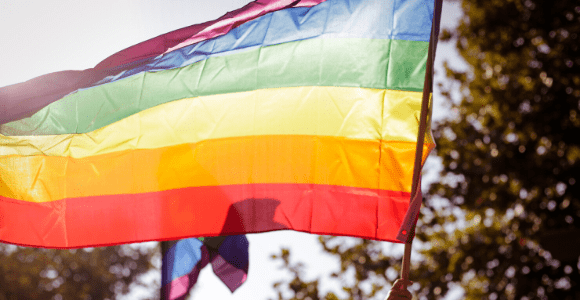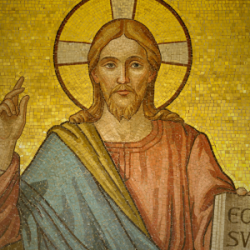Welcome readers! Please subscribe through the buttons on the right if you enjoy this post.

In both Matthew’s and Luke’s gospels we read these words:
“For those who exalt themselves will be humbled, and those who humble themselves will be exalted.” (Matthew 23:12, cf. Luke 14:11)
Purity Circles
In this saying, we once again face one of Jesus’ teachings that we must be careful not to apply to everyone. Jesus specifically pointed the saying at those who had lifted themselves up to be above their peers.
In Matthew’s story of Jesus, this saying is in the context of Matthew’s critique of certain ones among the scribes and the Pharisees. A little background will help us understand.
In The New Testament World: Insights from Cultural Anthropology, Bruce Malina tells us how the purity cultures of the ancient world like the Hebrew tradition gave their members a sense of order from the chaos of the material world around us.
“Specifically about the general cultural map of social time and space, about arrangements wishing the space thus defined, and especially about the boundaries separating the inside from the outside. The unclean or impure is something that does not fit the space in which it is found, that belongs elsewhere, that causes confusion in the arrangement of the generally accepted social map because it overruns boundaries.” (p. 125)
Notions of ritual cleanness or uncleanness were connected to a sense of belonging: in certain communities, well-defined boundaries marked insiders from outsiders. Within such cultures, there was also a spectrum of cleanness. The greater your ability to remain clean, the purer you were. The opposite was also true. These notions of purity were not simply religious; they were but also social, economic, and political.
Think of a circle for a moment. If the circle represented the community, the purer you were, the closer you were to the center of the circle. The more unclean you were, the more you were pushed to the edges or margins. And guess who made the decisions for the group as a whole? You guessed it: those at the center. Those closer to the center had greater political, economic, and societal control. They maintained the status quo, a status quo that benefitted and privileged those at the center over those on the edges.
William Herzog once commented on the political struggle for the center in 1st Century Jewish society. His thoughts shed insight on why Matthew would have included this week’s saying.
“According to Leviticus 11:38 if water is poured upon seed it becomes unclean. [Think if you’ve ever had seeds ruined by rain water while they were still in their envelopes.] The passage, however, does not distinguish between seed planted in the soil and seed detached from the soil . . . In years of poor harvests, a frequent occurrence owing to poor soil, drought, warfare, locust plagues and poor methods of farming, this text was a source of dispute. Why? During such lean years, grain was imported from Egypt. But the Egyptians irrigated their fields (putting water on seed) so that their grain was suspect, perhaps even unclean. The Sadducees judged that such grain was unclean and anyone consuming it also became unclean. They were quite willing to pay skyrocketing prices commanded by scarce domestic grain because they could afford it. . . . One senses economic advance being sanctioned, since the Sadducees were often the large landowners whose crops increased in value during such times. By contrast the Pharisees argued that the Pentateuchal ordinance applied only to seed detached from the soil; therefore . . . one could be observant and still purchase Egyptian grain.” (in Ched Myers’ Binding the Strong Man: A Political Reading of Mark’s Story of Jesus, p. 76)
The Pharisees were the religious teachers of the masses, while the Sadducees were the elites who desired above all else to maintain their control on society. The Pharisees appeared to want to make purity more accessible to the masses, so in that context, they were considered the “liberals” while the Sadducees were the “conservatives.” Yet they were not really concerned with empowering the masses, but with placing power in their own hands, a power that the masses would legitimize. They did not dismantle the system; they only sought to co-opt it and hold the socio-political power and a populous base over the Sadducee elites in Jerusalem.
On the contrary, Jesus wanted to, proverbially, “burn the whole system down.” He repeatedly transgressed purity boundaries, bringing in those who had been pushed down and to the margins of his culture. He didn’t do this because he was anti-Jewish or anti-Torah. I believe he did this because he saw the purity model of societal order as deeply damaging to those of his Jewish siblings who were forced by those at the center to live on society’s fringes and edges.
In our saying this week, we see a Jesus who challenged and subverted the model of organizing society as a purity circle with insiders and outsiders. Jesus challenged this way of organizing society not just with his words, but also with his table, body, and temple/synagogue practices in the gospels.
We’ll come back to this in a moment.
Tax Collector Versus Pharisee
Matthew describes a flat hierarchical model, a circle, Luke uses a three-dimensional image: a pyramid. The circle has a center and margins, but a pyramid has a few at the top who wield control or power over the masses below them. The lower one goes in a social pyramid, the greater the number of people and the less those people have any say about the world in which they live.
Luke places our saying this week in the context of a story about a Pharisee and a tax collector. Both of these groups were closer to the top of Jesus’ social, economic, and political pyramid. Both were typically well-to-do financially. But where one of these groups in the gospels responded positively to Jesus’s teachings, the other did not. “For John came to you. The tax collectors responded positively, but the religious authorities rejected him.” Luke adds this parable:
“Two men went up to the temple to pray, one a Pharisee and the other a tax collector. The Pharisee stood by himself and prayed: ‘God, I thank you that I am not like other people—robbers, evildoers, adulterers—or even like this tax collector. I fast twice a week and give a tenth of all I get.’ But the tax collector stood at a distance. He would not even look up to heaven, but beat his breast and said, ‘God, have mercy on me, a sinner.’ I tell you that this man, rather than the other, went home justified before God. For all those who exalt themselves will be humbled, and those who humble themselves will be exalted.”
In Luke’s telling of the story, “The Pharisees, who loved money, heard all this and were sneering at Jesus” and his economic vision (Luke 16:14). By contrast, the hated tax-collector responded, “Look, Lord! Here and now I give half of my possessions to the poor, and if I have cheated anybody out of anything, I will pay back four times the amount” (Luke 19:8).
The tax-collectors were the last ones expected to respond to Jesus’ economic teachings of mutual aid and wealth redistribution. Yet they came to Jesus’s shared table, while others did not, and Jesus welcomed them (see Luke 15:1-2).
In Luke, certain of the Pharisees continued to compete with the temple elite for the exalted position of political control over the masses while certain ones of the tax-collectors humbled themselves and embraced a world where there is enough for everyone. I’m sure there were exceptions; stories are often told with generalizations. What remains is the truth that when we seek to exalt ourselves over others, it leads to disastrous results for everyone.
How Not To Use This Passage
There is a difference between someone at the center or top of a group having their self-exaltation challenged, and those on the periphery and bottom working to lift themselves up to an equitably shared position. Let me explain.
One example is found in Carol Anderson’s book White Rage. Over and over it recounted the history of how whiteness and structural racism have functioned in American society to impede social progress upward or toward the center for people of color. Sayings like ours this week have been aimed at people of color to try and silence or shame their efforts at equality.
I cannot emphasize strongly enough that there is a difference between those who would exalt themselves over others and those who simply are seeking to lift themselves up to level ground. One group seeks to maintain an unjust status quo, and the other simply works toward equality. Our saying this week is not about those lifting themselves up toward equality. It’s about those who continually impede their work, who have exalted themselves over others, who are called to humility, equity, and solidarity with those lower or on the periphery.
A couple of summers ago now, I was blessed to be able to participate with SDA Kinship International in D.C.’s Capital Pride parade. June is Pride Month for the LGBTQ community. It is also a month when I see a lot of Evangelical Christians critiquing the idea of “pride” itself. “Pride is a sin!” they say. And they quote our saying this week, “Everyone exalting oneself will be humbled, and the one humbling oneself will be exalted.”
But social location matters. There is a vast difference between the kind of pride that exalts self over others as if you were the normal or ideal and others were somehow less than (think heterosexism) and the kind of pride that rejects the social shame others have tried to impose on you for being different and claims you are of equal worth with others. Pride that simply lifts oneself to a place of equality with others is not a sin! And our saying above isn’t critiquing that kind of pride.
If a person is already being shamed and humiliated, they don’t need to humble themselves further. They are already experiencing humiliation from those who endeavor to marginalize them and their voices. Those who really need to humble themselves in that situation are those who think that just because someone is different they are broken or less than.
There was a time when those who were left-handed were considered less than, too. We don’t know why some are born one way and others are born another, but these differences do exist. Jesus subverted systems that push people to the margins or undersides of society, and that should challenge any Christian who believes cisgender heterosexuals are the ideal and all other people should stay on the margins of society. It is for them that this saying was given. They are the ones our saying this week is speaking to.
In Ched Myers’ book Binding the Strongman: A Political Reading of Mark’s Story of Jesus, Ched shows how social pyramids and circles functioned in Jesus’ day and how they call those of us who want to follow Jesus to challenge similar models today.
These two statements resonated deeply inside me:
“White North American Christians, especially those of us from the privileged strata of society, must come to terms with the fact that our reading site for the Gospel of Mark is empire, locus imperium . . . The ‘irreducible meaning’ of empire is the geopolitical control of the peripheries by the center . . . the fact remains that those on the peripheries will have ‘eyes to see’ many things that those of us at the center do not.”
And
“The ancient Mediterranean world was dominated by the rule of imperial Rome [center]. However, whereas I read from the center, Mark wrote from the Palestinian periphery. His primary audience [was] those whose daily lives bore the exploitative weight of colonialism, whereas mine [is] those who are in a position of enjoy the privileges of the colonizer. In this sense, Third World liberation theologians, who today also write from the perspective of the collided periphery have the advantage of a certain ‘affinity of site’ in their reading of the Gospels.”
Whether we use the model of a pyramid where the few at the top control everyone beneath them, or the model of a circle where those closest to the center have control of the community, our saying this week offers a critique and warning to all who push others from a position of input and influence to the margins, edges, or periphery:
“Everyone exalting oneself will be humbled, and the one humbling oneself will be exalted.”













